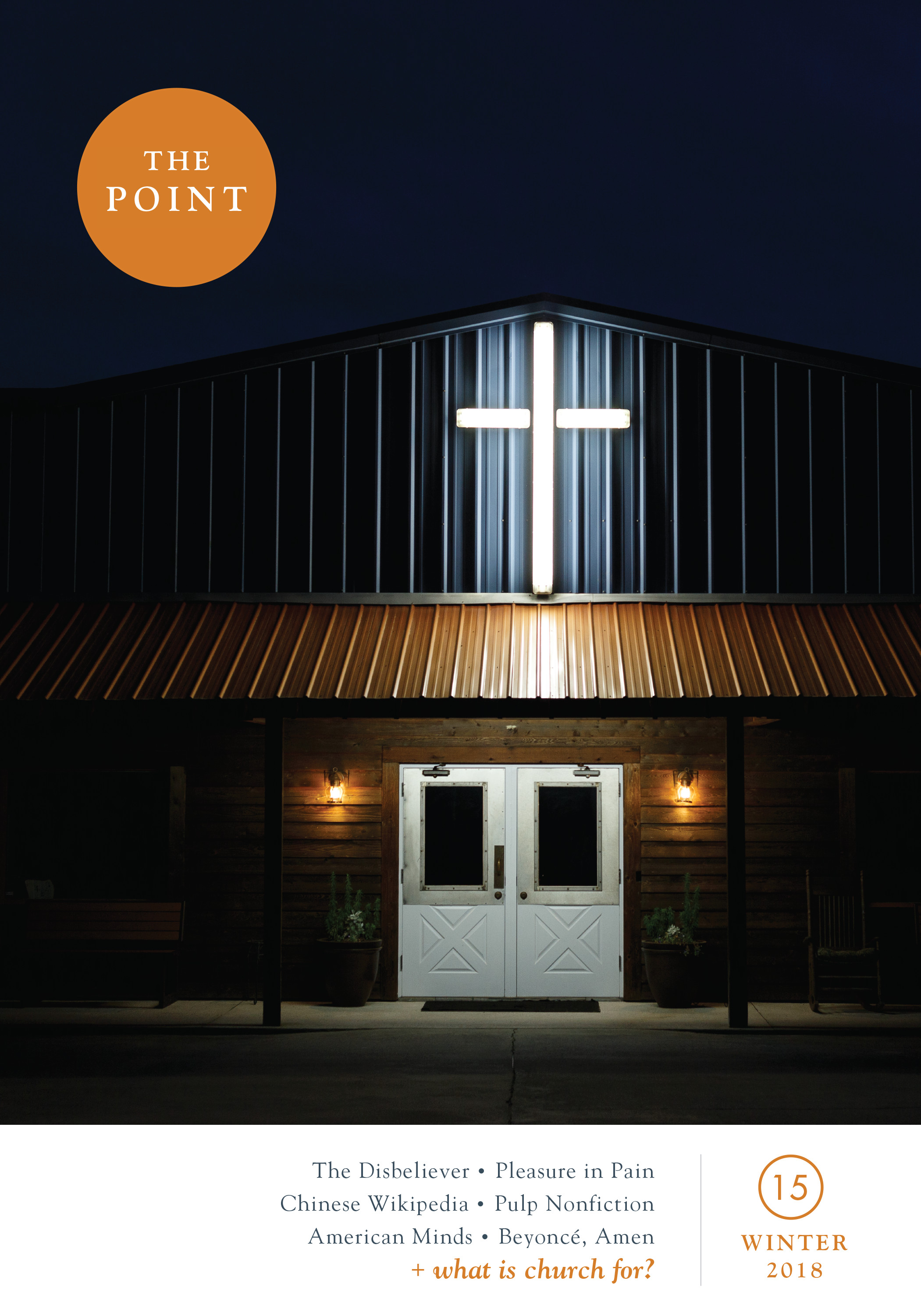If you happened to log onto Facebook around Thanksgiving, you might have seen these words, blinking in white against an emergency-red background: “URGENT: If you’re not freaking out right now about net neutrality you’re not paying attention.”
Old Mohawk Paper company lore has it that in 1946, a salesman named George Morrison handed his client in Boston a trial grade of paper so lush and even, so uniform and pure, that the client could only reply, “George, this is one super fine sheet of paper.”
It couldn’t have happened the way I remember, because pain ought to contradict pleasure.
Fleur Jaeggy is an insomniac. She nods off at dawn after lying immobile on a bed. She has thought of nothing the night before.
Directors don’t have a consistently identifiable “prime” in the way that, say, boxers do.
When I was a little girl, I hid in church.
In Philip Larkin’s poem “Church Going,” the narrator peeks into a church, apparently at random, while on a bicycle ride.
A church cannot define itself as moral agency because its message is not a primarily moral one and because it offers itself to no one as agency. Morality is a poor basis for missionary work.
When Augustine of Hippo, the venerable philosopher and bishop, first used religio Christiana in his legendary opus The City of God, he was unhappy with the phrase.
1998. A man in black walks along a dark street on the outskirts of a metropolis. The spotlight follows him. He stops and recites a mantra, over a steady house beat.
Why do people who have this urge for the transcendent also tend to participate in social rituals and practices? Why should this impulse, these attitudes, lead to church?
I’m not much of a Quaker.
We invited priests and pastors from across the country to participate in a short survey about the joys, challenges and day-to-day work of leading a church in contemporary America.
Philip Gorski is a professor of sociology at Yale University, where he is the co-director of the Center for Comparative Research and the Religion and Politics Colloquium at the Yale MacMillan Center.
Philip Gorski is a professor of sociology at Yale University, where he is the co-director of the Center for Comparative Research and the Religion and Politics Colloquium at the Yale MacMillan Center.
We invited priests and pastors from across the country to participate in a short survey about the joys, challenges and day-to-day work of leading a church in contemporary America.
On June 4, 2013, a month before Mohamed Morsi, Egypt’s first democratically elected president, was toppled by a coup d’état, a forum was held in Cairo under the title “Islam and Democracy.” The panel’s main attraction was Hamed Abdel-Samad, whose incendiary memoir, My Farewell from Heaven, had raised suspicion among religious authorities in the country.
Living in Shanghai, as I did for several years, often made me exercise muscles of suspicion I’d barely even known I had.
I was not prepared for the size of the thing—there had been little in the exhibition photographs to indicate its scale. I rounded the corner and there it was, two stories tall.
Allan Bloom was an elitist. He saw himself as a champion of excellence in an age of vulgarity.
